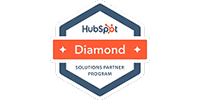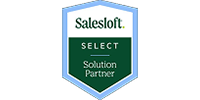Why Demand Generation Success Depends on Proper CRM Optimization and Usage
Any organization looking to generate demand, regardless of channel or approach, must be backed up by a powerful CRM to support their efforts and provide the data visibility needed for optimizations. Almost every organization has a CRM, but few are truly getting the most out of it. At FullFunnel, we’ve worked with companies generating tens of millions of dollars in revenue that do not require their reps to update records until a sale has been made or a deal has been lost.
In this blog, let’s break down why that approach is fundamentally flawed and how CRM optimization provides the foundation for demand generation success.
Visibility and Strategy
Let’s start at the very beginning. At its core, proper CRM implementation enables reps to be more efficient and effective at their jobs. Logging calls, scheduling tasks, and marking leads allows reps to focus on the prospects that have the highest chance of conversion. If nothing else, reps should be updating records to make their own lives easier.
But beyond these basic productivity improvements, diligent CRM optimization provides organizations with the data visibility and analytics they need to make changes and share knowledge across teams. What types of companies respond best to your offering? Which channels are most effective in reaching your target audience? What messaging resonates best with decision-makers? What do your conversion rates look like across the sales funnel? These questions can only be answered with data, and that data can only live in your CRM. Otherwise, you’re left with making key business decisions based on a rep’s anecdotal feedback and recollections.
Proper CRM optimization and implementation also allows teams to be more nimble and deliberate in their actions. Even if you could have reached the same conclusions by just listening to your reps’ feedback, you’ll get there much quicker by looking at the data.
Accountability
Sales success is predicated on individual accountability. Reps are responsible for hitting their activity numbers and their monthly or quarterly goals. Your CRM should be an accountability tool, allowing sales managers to check in on their reps’ activity and progress against those goals. And this goes both ways. If a rep is expected to hit certain numbers, but their CRM records show that these targets are unattainable given low phone connect rates or bad email data, that puts the onus back on the manager to provide their team with the strategies, data, and targets they need to be successful.
Unfortunately, many managers complain about a complete lack of visibility and accountability in their teams. Going into a CRM and seeing that a call was held, but has no notes, creates a bevy of questions. Did the call actually happen? If it did happen, was it productive? Are there any next steps? Even if the interaction was as simple as someone not being interested and hanging up, putting that information in the system provides the context necessary to draw conclusions about that contact, company, or even industry.
Managers can’t expect for reps, especially first-time reps, to embrace diligent CRM usage on their own. It takes a top-to-bottom effort, which includes properly training your team and ensuring that reps have mastered the system before they’re allowed to use it. Even if a rep has every intention of being transparent and logging their activity, relying on notes without updating records and fields will damage your team’s ability to run analytics and pull reports. Training is key to ensuring that reps can actually be held accountable for their activity.
Scalability
It’s no secret that many sales teams are reliant on a few top performers to generate huge portions of their revenue. To a certain degree, that will always be the case, as differences in talent and work ethic are to be expected. The problem is that many teams do not expect these superstars to actually update the CRM, because as long as deals are closing, they don’t care too much about the process or analytics. This can work in the short term. However, when that superstar moves up in the organization or, worse, moves on to a new company, they will undoubtedly leave a hole behind them. The team will be left scrambling to figure out the rep’s key to success and trying to pick up where they left off.
Consistent, comprehensive CRM maintenance is imperative for creating a successful and scalable demand generation program. When the CRM is regularly updated and teeming with valuable information, new BDRs can join and be almost immediately productive because they have a roadmap and already established process to help them succeed.
* * *
If your organization is struggling to build a productive demand generation program, or with getting the most out of your CRM, schedule a free consultation to learn more about FullFunnel’s approach and how we’ve built successful outbound sales campaigns for hundreds of organizations across the globe.











